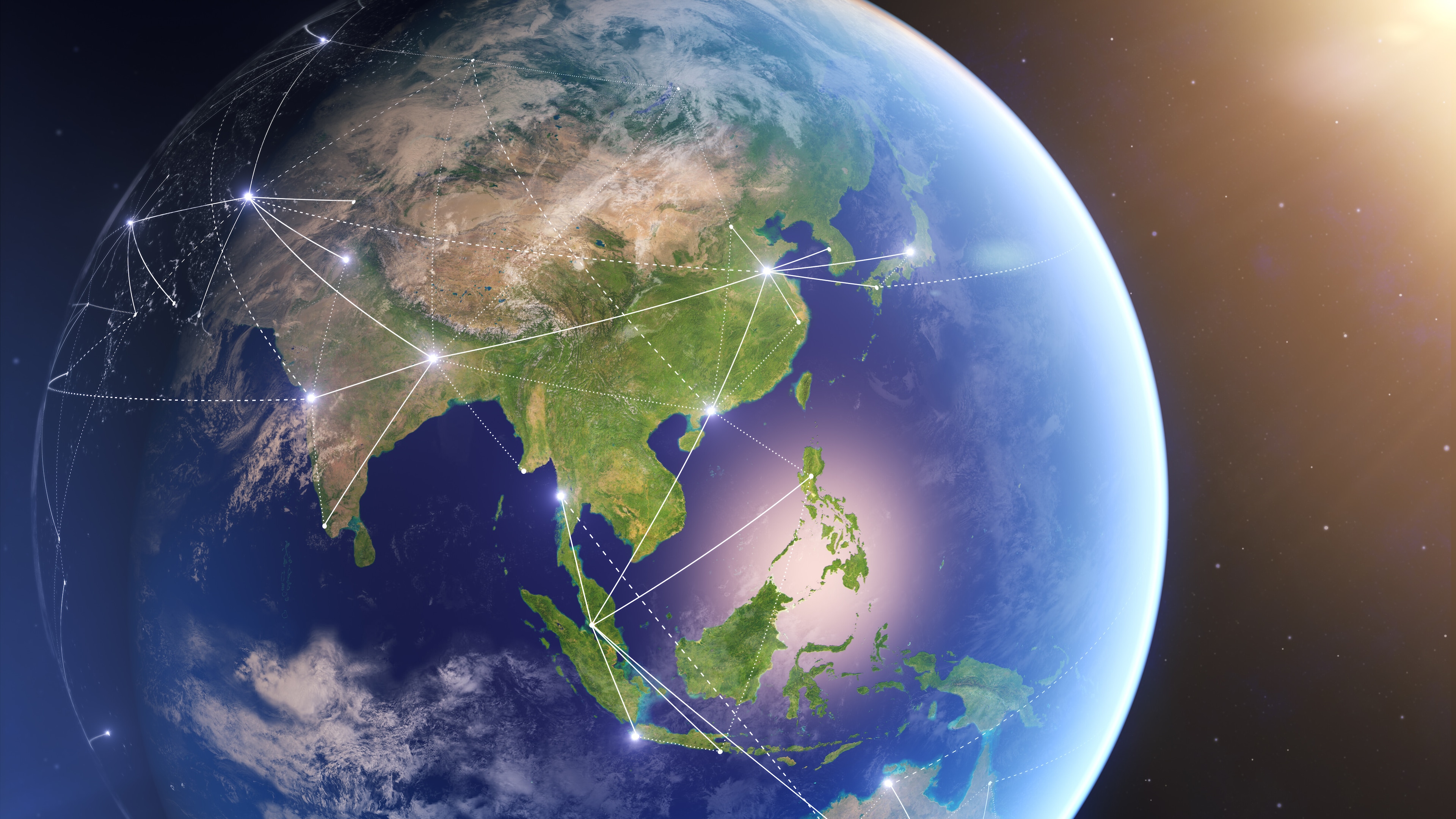Four overlooked factors behind Africa’s economic success
Stay up to date:
Africa
The African economic success story is by now a well-reported fact. More than half of the world’s 10 fastest-growing economies are in Africa, and the continent’s economy is projected to grow more than 5% this year. In sub-Saharan Africa overall, the annual economic growth rate for more than a decade has surpassed that of far wealthier countries that comprise the Organization for Economic Cooperation and Development.
Many individual countries have recorded even faster progress, and there have been dramatic improvements across much of the continent on key social and economic indicators – from primary education to maternal and child mortality.
Yet, wide variations within and among countries remain. Nearly one in two Africans is still living in extreme poverty. Overall health and education indicators remain among the lowest in the world. Addressing these substantial remaining inequalities is the key to reducing the insecurity and terrorism that threatens communities and makes progress more difficult.
As the global community gathers in Abuja for the World Economic Forum on Africa 2014, it is useful to reflect on the factors that have fuelled Africa’s economic growth in recent years. Being mindful of these influences can help the global community push progress towards a more inclusive and sustainable development model.
At the top of the list is a new generation of African leaders committed to undertaking widespread reforms, which has led to dramatic improvement in economic growth. Countries that have prioritized public-sector investment in areas such as agricultural development and health are seeing the return in the form of more productive agricultural economies, poverty reduction, reduced child mortality and better health.
There are other factors that people don’t talk about quite as often, and these include:
The Millennium Development Goals
The United Nation’s Millennium Development Goals (the MDGs) have been an important catalyst for Africa’s renaissance. The MDGs laid out eight specific priorities in areas such as health, education and basic income. Because the goals were clear and concrete, they brought focus to the highest priorities. And they created an enabling environment for well-coordinated and effective global partnerships – such as the Global Fund and the GAVI Alliance – that are anchored to the needs of developing countries and focused on achieving the most at the lowest cost.
The Global Fund recently completed a $12 billion funding replenishment, underscoring global unity on the most effective ways we can combat HIV, malaria and tuberculosis. The GAVI Alliance is just now approaching its own replenishment to ensure that life-saving vaccines continue to reach the children who need them. I’m excited to see several events here at the Forum on Africa that focus on the commitment of African leaders and the private sector to support and prioritize GAVI’s programmes.
Basic health services
By focusing on improving health systems (and other related factors such as nutrition, sanitation, education and income) half a dozen African countries have met the MDG goal of reducing deaths in children under five, by two-thirds or more. Maternal mortality dropped 42% between 1990 and 2010.
The value of investment in health is bolstered by a report by well-regarded economic experts, who wrote recently in The Lancet that nearly one-quarter of the “full-income” economic growth in low- and middle-income countries between 2000 and 2011 resulted from health improvements. The Commission on Investing in Health went on to say that with the right investments and changes in policies, by 2035 every country can reduce child mortality rates to match the very best middle-income countries today. And in the poorest countries, benefits will exceed costs by a factor of nine. Economists and development professionals have long known that investments in global health are economically sound, but these findings are further evidence of how much punch they deliver.
Increasing agricultural productivity
Agricultural development is another powerful economic lever in Africa, where farmers comprise 65% of the workforce. Helping smallholder farmers in developing countries increase the productivity of their crops enables them to eat a more nutritionally diverse diet, send their children to school and live better lives. Furthermore, when farmers’ income increases, it stimulates growth in other sectors of the economy.
African countries that have invested significantly in agriculture are realizing impressive returns. Seven countries – Burkina Faso, Ethiopia, Guinea, Malawi, Mali, Niger and Senegal – consistently expended 10% of their budget on agriculture between 2003 and 2010. Ghana, Madagascar and Zambia followed close behind, averaging 9%. Partly because of these investments, all but one of these countries are on track to halve extreme poverty by 2015. Yet, many African countries are spending considerably less on agriculture, missing an important opportunity to break the cycle of poverty and stimulate growth.
Donor investment
Not surprisingly, public-sector investments in areas with a proven track record of contributing to economic growth attract other sources of investment – from donor governments, the private sector, and newer development actors, such as us at the Bill & Melinda Gates Foundation.
Ethiopia is a case in point. Prompted by the 2007-2008 global food crisis, the country established the Agricultural Transformation Agency, which works with the Ministry of Agriculture and other partners to help smallholder farmers increase their productivity, tap new markets and improve their livelihoods. This initiative has mobilized other donors – including USAID, the World Bank and our foundation – to support Ethiopia’s ambitious agenda. Early results are promising. In 2012, more than 500,000 farmers received training in new agricultural practices; these are expected to significantly increase yields and reduce post-harvest losses. Efforts are also underway to link smallholder farmers with new markets and strengthen farmer cooperatives.
With donor support, Ethiopia has also significantly increased its spending on health. As recently as 1990, one in five Ethiopian children died before the age of five – many in the first month of life. The child mortality rate has since dropped by 67%. A key factor in this advance is Ethiopia’s mobilization of more than 34,000 health workers, who now reach the vast majority of the country’s 90 million-strong population.
The health services are basic, but they have significantly improved people’s lives. Health workers deliver babies and administer vaccines. Health posts are stocked with malaria drugs and supplements that provide essential micronutrients such as folic acid and vitamin A. Use of modern contraceptives has risen fourfold, giving women the opportunity to plan their families. Children are healthier, doing better in school and missing fewer days of class.
This kind of investment – in health and agriculture – has helped underpin the growth of Ethiopia’s economy. Between 2000 and 2012, the country’s GDP quadrupled to $40 billion, and the gross national income per capita more than doubled, from $467 to $1,110.
The theme of this year’s Forum on Africa is Forging Inclusive Growth, Creating Jobs. As we have our conversations this week, it is worth reflecting on what has worked well in recent years and how we can continue to work together to reach those who have not yet benefited from Africa’s economic progress.
Author: Mark Suzman is president of Global Policy and Advocacy at the Bill & Melinda Gates Foundation. He is participating in the World Economic Forum on Africa 2014 in Abuja, Nigeria.
Image: Ethiopian farmer Eshete Eneyew threshes maize in Abay, north of Addis Ababa, October 21, 2009. REUTERS/Barry Malone
Don't miss any update on this topic
Create a free account and access your personalized content collection with our latest publications and analyses.
License and Republishing
World Economic Forum articles may be republished in accordance with the Creative Commons Attribution-NonCommercial-NoDerivatives 4.0 International Public License, and in accordance with our Terms of Use.
The views expressed in this article are those of the author alone and not the World Economic Forum.
Related topics:
Forum Stories newsletter
Bringing you weekly curated insights and analysis on the global issues that matter.
More on Economic GrowthSee all
Li Dongsheng
July 31, 2025
Charlotte Edmond
July 30, 2025
Naoko Tochibayashi
July 30, 2025
Matt Watters
July 29, 2025
David Elliott
July 28, 2025
Michael Wang
July 28, 2025





